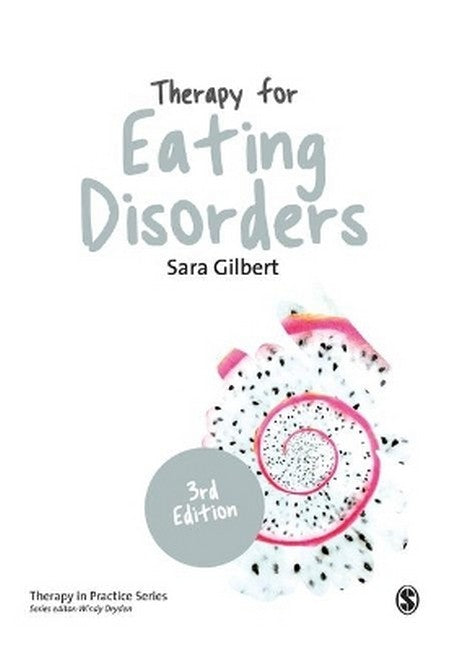Sara Gilbert is a chartered clinical psychologist who has had a specialist interest in the field of eating disorders for nearly twenty years. She currently works for the Luton and Bedfordshire community NHS trust.
Request Academic Copy
Please copy the ISBN for submitting review copy form
Description
Preface Acknowledgements What is an eating disorder? A note about psychiatric diagnosis Eating Disorders in the twenty first century The relationship between weight and eating disorder Anorexia nervosa Bulimia nervosa Binge Eating Disorder Feeding and Eating disorders not elsewhere classified Other causes of weight loss or gain or unusual eating behaviours Causes of the Eating Disorders Psychobiological mechanisms Psychosomatic theories Looking for an explanation in the past Eating disorder and other psychiatric diagnoses: is there a genetic susceptibility? Anorexia and bulimia nervosa as sociocultural phenomena Eating disorder as learned behavior Eating disorder as a corollary to dieting and food deprivation Conclusions Treatment for the Eating Disorders Psychodynamic therapies Family therapies The use of psychotropic medication Cognitive behaviour therapy An outline of the characteristics of CBT How effective is CBT for eating disorders? Conclusions A Cognitive Behavioural and Integrative Approach to Eating Disorders The theoretical basis of a cognitive behaviour therapy approach to the eating disorders The structure of cognitive therapy for eating disorders The acceptability of cognitive therapy for eating disorders A broad interpretation of cognitive therapy for the eating disorders Conclusions Beginning the Therapy Process The initial stages Some questions to ask when assessing the person with an eating disorder The use of questionnaires in the assessment of eating disorder Is this the right time for therapy? Conclusion Preparing for change Presenting the cognitive behavioural view and formulating the problem Assessment of motivational stage in people with an eating disorder Self-monitoring by the client Setting the agenda for therapy A focus on emotions and coping strategies Psychoeducation Nutritional Aspects of Helping the Eating-Disordered Client Nutritional knowledge of eating-disordered clients Nutritional counselling The body's need for good nutrition Knowledge about energy balance and weight regulation Information about the specific effects of bingeing and purging Information about the effects of food and eating on metabolism Establishing a normal eating pattern with obese binge eaters: to diet or not? Establishing weight gain with anorexics Behavioural Techniques Self-monitoring Target setting Behavioural experiments Self-reward Scheduling pleasant events Behavioural techniques for controlling overeating (self-control) Taking exercise Practising 'normal' eating Exposure Assertiveness around food Relaxation and stress management Conclusion Cognitive Techniques Identifying negative thoughts Answering negative thoughts Homework Identifying and dealing with dysfunctional assumptions and core beliefs Modifying assumptions and core beliefs Exploring the meaning of eating disorder symptoms Getting 'stuck' Conclusion Adapting to Different Situations and Dealing with Endings Working with severe and complex cases The end of the therapy relationship Preventing relapse Involving family members in the therapy process Working with groups Working in parallel with other treatments Conclusion Conclusion Appendix 1: Some useful web pages Appendix 2: Eating Problems: Resources for Clients Appendix 3: Eating Disorders and their Effects Appendix 4: Guidelines for Normal Healthy Eating Appendix 5: The Effects of Strict Dieting and Starvation and of Giving Them Up Appendix 6: Medical and Physical Problems Caused by the Symptoms of Eating Disorders Appendix 7: Controlling What You Eat Appendix 8: Giving Up Vomiting as a Way to Control Your Weight or Deal with Stress Appendix 9: Learning to be Assertive about What You Eat: A Bill of Rights References Index
`Sensible, thoughtful and full of helpful 'how to' advice for the therapist' - Behaviour Research and Therapy `A particularly suitable book for individuals with a general mental health training who are starting work with this patient group. It deserves to be widely read' - European Eating Disorders Review `An invaluable resource for anyone working in, or wishing to know more about, eating disorders' - Dietetics Today Written from a cognitive behavioural perspective, this updated edition provides an excellent overview of the diagnosis, prevalence and causes of Eating Disorders, as well as a handbook to the application of evidence based interventions. An extremely valuable resource for those already working in the field, and an easy to access introduction for those mental health practitioners new to working with sufferers of Eating Disorders. The appendices provide excellent resources for use in the self help management or as an adjunct to therapy for sufferers and their families. A 'must buy' for Eating Disorder Services and individual practitioners! -- Sally Savage This newly updated edition is a well-structured, accessible and thoughtful guide to the nature and treatment of eating disorders. This book will undoubtedly be valued by all practitioners working within the field of eating disorders. -- Dr Alex Willner Sara Gilbert shares over 20 years experience covering both practical and theoretical techniques in a clear, readable manner. The technical terms used are well explained and the book offers lots of useful strategies for those working within this field. I would highly recommend this book to anyone working in the mental health sector. -- Martine Johnson Sara Gilbert's book is a significant contribution to the literature on eating disorders and their treatment and a useful general reference manual, especially for CBT therapists and other health service providers. This third edition is enriched by the latest research findings in the field, ranging from the DSM-5 classifications to magnetic resonance imaging techniques used to detect structural changes in the brain of people with eating disorders. -- Flora Todaro Luck, Psychotherapist

